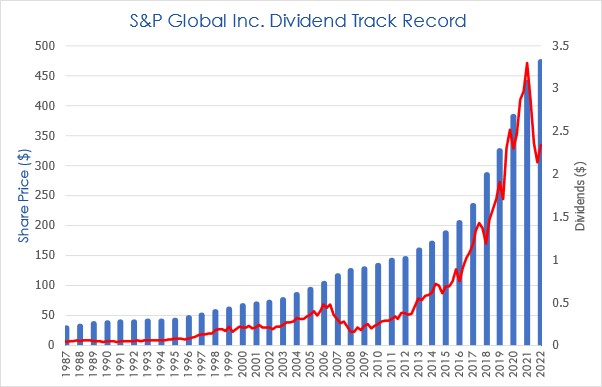With interest rates continuing to rise, persistent inflation and the collapse of several mainstream financial institutions (as a result of fleeing depositors), it’s unsurprising that negative economic sentiment has prevailed in 2023. Looking ahead, although inflation has begun to ease and the interest rate hiking cycle appears to be coming to an end, financial conditions remain restrictive and are expected to weigh heavily on economic growth. Such an environment will test business models and expose weaknesses that were previously masked by the overstimulated post-COVID global economic recovery. As Warren Buffet famously said, “only when the tide goes out do you discover who’s been swimming naked.”
Despite the recent global challenges, the performance of Marriott’s international equity portfolios has been encouraging, driven by our income focused investment approach which looks to invest in high-quality, robust, dividend-paying companies. These companies are able to grow their earnings regardless of the prevailing economic conditions and exhibit a range of characteristics including:
- Robust balance sheets. Although interest rates are now at their highest level since 2007, companies with appropriate leverage and strong balance sheets have been able to navigate the rising interest rate environment and take advantage of market opportunities with bolt-on acquisitions, further strengthening their earnings profiles.
- Market leadership. In an inflationary environment market leaders, aided by brand loyalty and the resulting pricing power, are more easily able to pass on input cost increases to their customers thereby maintaining profit margins. McDonald’s, for example, was able to increase prices by 10% in the USA during 2022 and grow year-on-year guest counts.
- To survive, and indeed thrive, over multiple decades companies must innovate – particularly in times of change. Nike, L’Oréal and McDonald’s, for example, all took the opportunity presented by the pandemic to strengthen their digital offerings. Online sales now make up 27%, 28% and 35% of their total revenue respectively, improving profit margins and providing the opportunity to better understand their customers.
- Strong Track Records. A company’s ability to reliably grow dividends over time is a strong indicator of their ability to generate cash flow and earnings through the economic cycle. The companies we invest in were able to do so despite the challenges presented by the pandemic, elevated inflation and rising interest rates and are well positioned to continue as we move into a lower growth environment. S&P Global, for example, has grown its dividend for each of the past 50 years and is well positioned to continue this trend.
- The future prospects of well-diversified companies are not tied to the fortunes of a particular economy or dependent on the success of one specific product. As a result they are well suited for continued dividend growth even as global growth becomes fragmented and continues to slow.
In summary, at Marriott our focus remains on selecting high-quality companies, with reliable track records of returning cash to shareholders in the form of dividends regardless of the stage of the economic cycle, paying appropriate prices for those companies and looking to hold them for the long term. Although relevant at all stages of the economic cycle, Marriott’s focus on providing more predictable investment outcomes is particularly well suited to periods of economic uncertainty and slowing economic growth – exactly the conditions that we face in 2023 and beyond.
These portfolios can be accessed via:
- Marriott’s offshore share portfolio (International Investment Portfolio)
- Marriott’s international unit trusts
(Using your annual individual offshore allowance of R11 million)
- Marriott’s local feeder funds which invest directly into our international unit trusts
(Rand-denominated)












